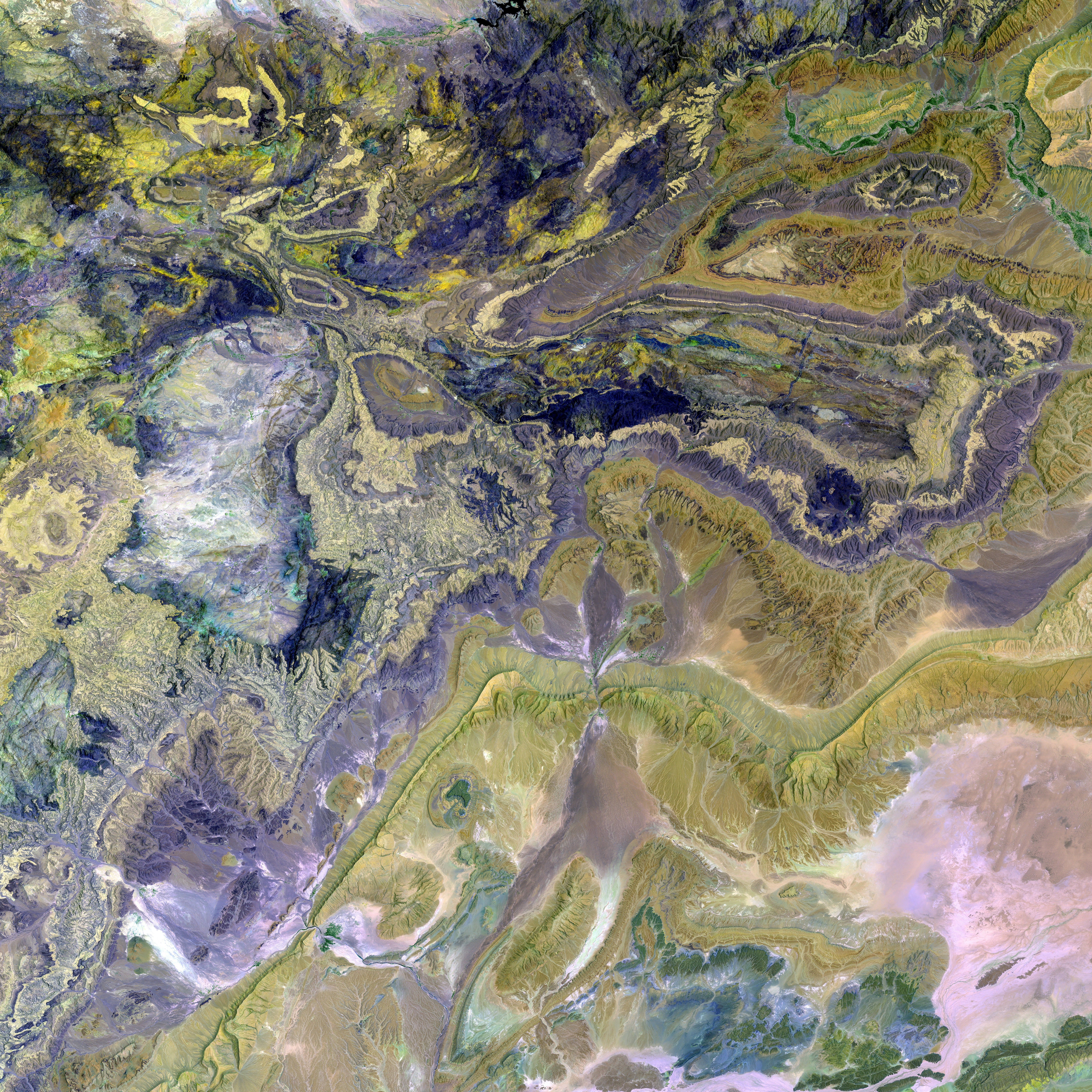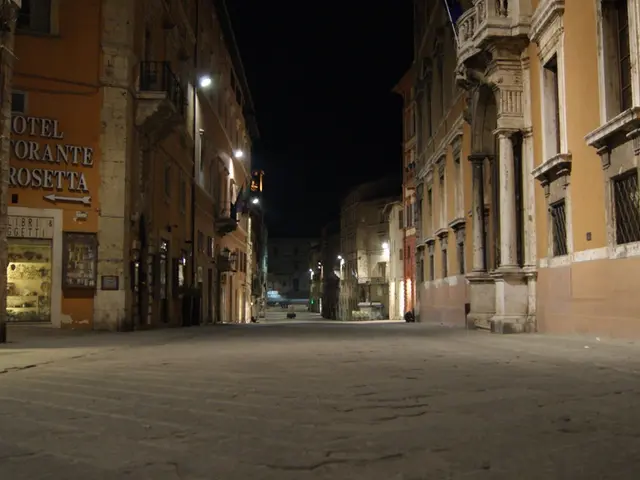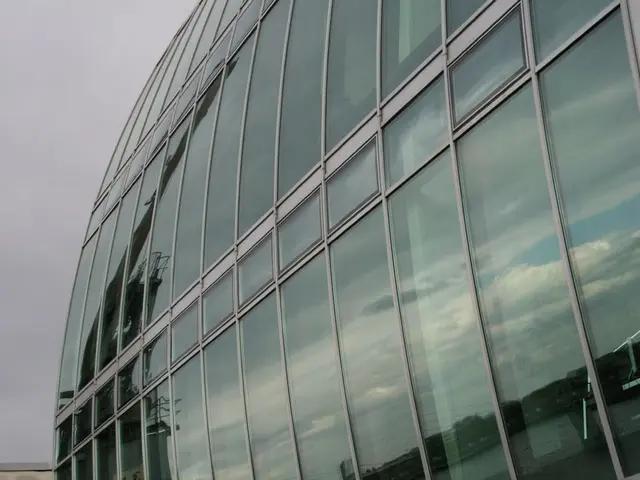Gridlock in Europe's Green Energy Revolution
Outdated European Electricity Grid Pose Threat to Fossil Fuel Transition, According to Study Released
Europe's transition to renewable energy is facing a massive obstacle, as a mounting pile of renewable projects worth over 1,700 gigawatts (GW) across 16 countries struggles to find a spot on the electricity grid.
According to a new report, Europe's electricity grid is lagging behind the renewable energy transition, primarily due to outdated grid planning and weak governance by electricity transmission system operators (TSOs). In this disorganized maze, clean energy projects are stuck in queues, delaying Europe's transition to a greener future.
With the European Union (EU) announcing its roadmap to sever ties with Russian fossil fuels by 2027, electricity grids will play a pivotal role in replacing dwindling supplies with homegrown renewable energy. However, according to a report by Beyond Fossil Fuels, E3G, Ember, and the Institute for Energy Economics and Financial Analysis, grid operators are using outdated assessments and plans based on antiquated government targets and assumptions about the electricity market. This outdated planning and lax governance are creating a bottleneck, stymieing Europe's shift towards renewable energy.
“Governments must dislodge these obstructions from the planning system so that grid operators can hook up renewable projects,” says Juliet Phillips, an energy campaigner at Beyond Fossil Fuels. Phillips suggests that granting TSOs and their regulators a climate mandate could ensure they make long-term investments and decisions that will future-proof Europe's energy systems.
Where the Gap Widens
Across these 16 countries, the delays add up to a capacity more than three times what the EU needs to reach its energy and climate targets for 2030. The most affected countries, as per the report, are the UK, Finland, Italy, and Germany, which have 722 GW, 400 GW, 348 GW, and 70 GW of renewable energy projects stuck in the connection queues, respectively.
€7.2 billion in renewable energy was wasted across just seven countries in 2024, thanks to grid connections that couldn’t accommodate these projects. This figure is a mere fraction of the actual cost, as many TSOs don't track the curtailment of renewables or know what it costs.
Many European economies witnessed renewable energy being cast aside, while those who generated the power still received compensation, passing the extra cost onto consumers. For instance, in Germany, €3.3 billion of wind and solar power was curtailed last year, while Spain might have lost up to €2.5 billion in 2024.
Fossil Fuels: A Self-Fulfilling Prophecy?
The report highlights that if the planning and regulation around upgrading electricity grids remains unchanged, Europe could find itself stuck in a vicious cycle where fossil gas might seem the only viable option because grid operators never anticipated a system based on renewables. Only five grid operators are actively planning for a fully decarbonised grid by 2035: EirGrid (Ireland), Energinet (Denmark), Fingrid (Finland), National Grid (UK), and Litgrid (Lithuania).
"Europe's electricity grid is not modernizing fast enough, and that must change," says Vilislava Ivanova, research manager at E3G. Ivanova emphasizes the importance of governments sending "clear political signals" to grid operators regarding the need to meet climate targets to foster a resilient and fossil fuel-free economy.
"Only through political leadership, independent governance, and clear incentives can we ensure grids become enablers rather than hindrances for Europe's clean and competitive energy future," Ivanova adds.
Sources
- "32 TSOs in 28 countries:How European transmission system operators are planning for the low carbon transition" - E3G, Ember, Institute for Energy Economics and Financial Analysis, Beyond Fossil Fuels, April 2023
- “Extreme Weather Poses Raised Threat to Europe’s Electricity Grid” - InsideClimate News, June 2022
- "Europe's Unprepared Grid Risks Delaying Energy Transition: Report" - Bloomberg, February 2023
- "EU to Invest Billions to Upgrade Power Grid to Boost Renewable Energy" - Reuters, May 2022
- "Europe's Grids Still Unable to Deliver on Green Ambitions" - Utility Dive, October 2022
- The lack of modernization in Europe's electricity grid, as indicated by Vilislava Ivanova from E3G, could lead to a vicious cycle where fossil gas becomes the only viable option due to outdated planning, hindering Europe's transition towards renewable energy.
- Environmental-science research has revealed that the delays in renewable energy projects across 16 European countries total more than three times the EU's capacity need to meet its energy and climate targets for 2030, with the most affected countries being the UK, Finland, Italy, and Germany. This gridlock results in significant financial losses, with €7.2 billion in renewable energy wasted in just seven countries in 2024.
- To ensure long-term investments and decisions that will future-proof Europe's energy systems, Juliet Phillips from Beyond Fossil Fuels suggests that transmission system operators (TSOs) and their regulators should be granted a climate mandate, providing them with a clear focus on the environmental aspect and enabling Europe to transition smoothly to a greener, renewable-energy-based future.








